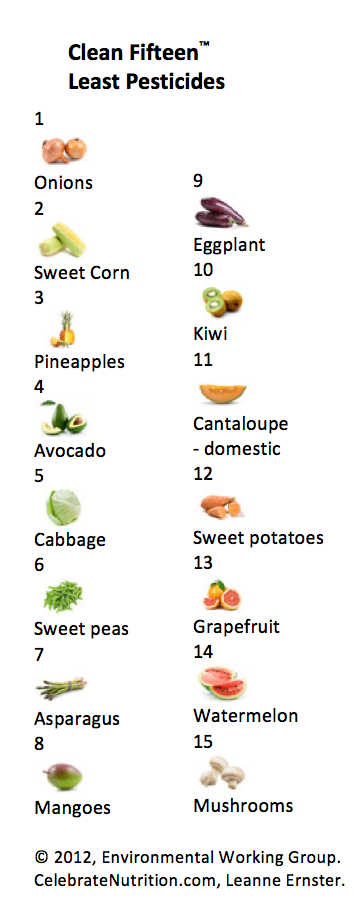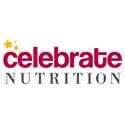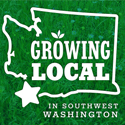Last week I challenged you to take one of the single best steps towards safeguarding the quality of your food and long-term health by buying the dirty dozen™ produce organic. Eating organically grown versions of the 12 most pesticide contaminated produce as often as possible allows us to avoid over 80% of our exposure to pesticides. Since most of us cannot afford to buy 100% organic produce, the clean fifteen™ produce list provides yet another wonderful strategy to understanding which ones to prioritize in our budget.
The Clean Fifteen™ refers to a list of the fifteen cleanest, least pesticide contaminated fruits and vegetables of all produce, as tested by the Environmental Working Group. This list, updated every year to couple of years, includes the following produce in descending order beginning with the cleanest: onions, sweet corn, pineapples, avocado, cabbage, sweet peas, asparagus, mangos, eggplant, kiwi, cantaloupe, sweet potatoes, grapefruit, watermelon, and mushrooms.
While organic produce is always the highest quality produce in every case, whether it is the better farming practices or higher phytonutrient content, understanding which produce are most clean and most dirty gives us the opportunity to be as intentional with our wallets as we are with our health. If, for example, you have limited funds but still want to eat clean, rather than spend more of your grocery bill on organic onions, which are the cleanest of all fruits and veggies, your budget is better invested towards organic apples, which are the number one most pesticide contaminated produce.
You are now a smarter, more informed shopper! Knowledge is power and understanding organics is one of the greatest steps towards receiving and sharing forward the gift of health.
Stay tuned next week for my tips and favorite resources for purchasing organics most affordably in the local SW Washington area!
Read more from EWG’s website: http://www.ewg.org/foodnews/
Read more about the dirty dozen and print a wallet/purse-sized dirty dozen™ shopping guide here. Leanne Ernster
CelebrateNutrition.com, 2012.
Facebook.com/CelebrateNutrition









